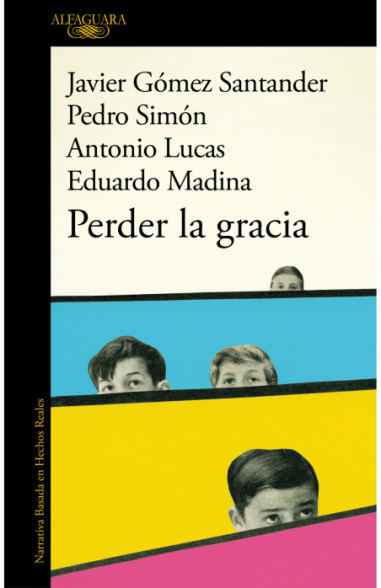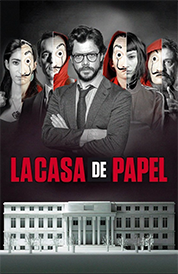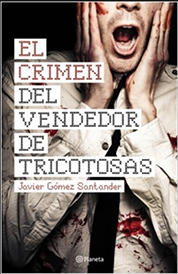Javier is a journalist, having worked in radio, as a writer, and as the host of a political television program. At 18, he moved from Santander to Madrid to study Journalism. He worked for news outlets like Ser and La Sexta, as a reporter, host, and director. Throughout it all, he never stopped writing. He collaborated as a columnist for Diario Público and El Mundo, among others.
He was screenwriter (Head Writer) and executive producer of Money Heistl, which in 2018 became the first Spanish series to win an International Emmy (Best Drama category), one of the most prestigious awards from the International Academy of Television Arts & Sciences. Broadcast in 190 countries and with over 44 million viewers, it has become the most-watched non-English language production on Netflix.
He wrote his novel “El crimen del vendedor de tricotosas” without ambition, not even having a publisher. At that point in his life, writing was something else; it was a kind of mental therapy. The only goal was to keep his mind occupied. He had left his job as a TV host of a political program after suffering from anxiety attacks and severe depression. In September 2014, Planeta Publishing bought the rights and published it a year later. It wasn't a best-seller by any means, but one of his readers reached out to him and invited him for coffee in a Madrid bar. That reader was renowned director Álex Pina, who had a new project in mind and wanted to discuss it with him. He also made a job offer that would mark a turning point in his career as a journalist.
"When he offered me the role of a screenwriter for the story, I not only told him I didn’t know how to write scripts, I confessed I had never even seen one. 'Don’t worry about that. I’ll teach you,' he replied. So, I decided to give it a try. I had already returned to my TV program and, for several months, I did both things until I had to choose. I took the risk. I had always been interested in literature, but since I was 21, I had worked in the media. It was what fed me. The routine had led me there, though deep down, I wanted to write fiction. Diving into screenwriting was stimulating for me; it felt like being 20 again, relearning everything from scratch."







